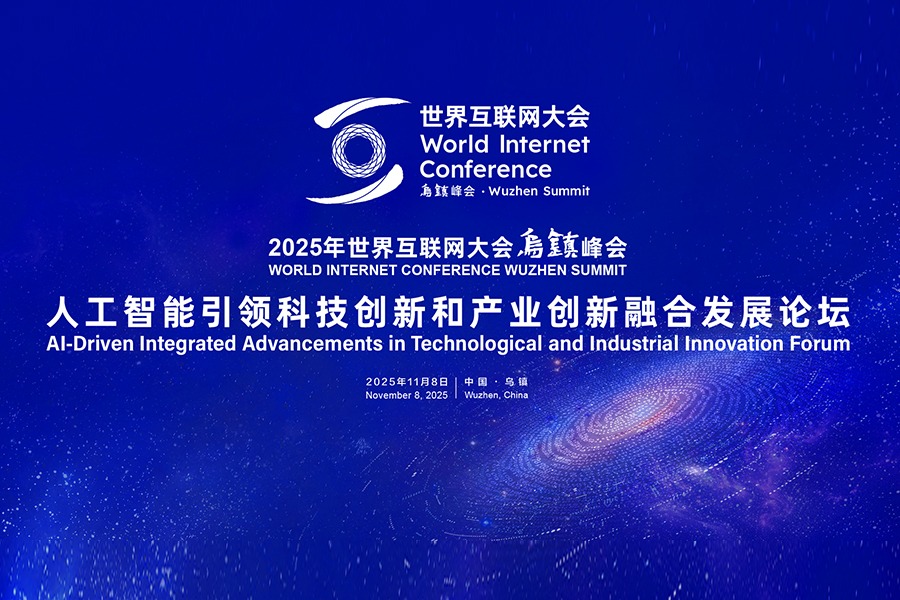GGI a road map for solving global challenges


In an age of profound uncertainty, marked by geopolitical rivalries, pandemics, the climate crisis, and growing development disparities, fair and equitable global governance has become a necessity more than ever. Existing institutions, while historically significant, are often found wanting when it comes to addressing pressing transnational issues. Against this backdrop, President Xi Jinping's Global Governance Initiative is a strategic framework that aims to recalibrate international cooperation.
Based on principles such as sovereign equality, respect for international law, multilateralism, people-centric development and practical results, the GGI promotes the building of a more just and equitable global governance system. The initiative outlines ways to address challenges, from climate change to digital disruption. By emphasizing solidarity over confrontation, and cooperation over unilateralism, the initiative offers a road map for building collective resilience in a fractured world.
President Xi's GGI proposal — at the recent SCO Summit in Tianjin — coincides with the 80th anniversary of the establishment of the United Nations. One of the founding goals of the UN was to prevent further man-made catastrophes. But eight decades later, the UN-centered system has met some serious challenges: gross underrepresentation of the Global South, erosion of authority, and lack of effectiveness.
For example, Africa, home to more than 1.4 billion people, should have a bigger say in the UN Security Council. Similarly, unilateral sanctions against developing countries show how selective interpretations of international law undermine the authority of the UN. On the other hand, the slow progress on the Sustainable Development Goals highlights the effectiveness gap — nearly 700 million people were living in extreme poverty in 2024 despite global commitments to the contrary. In this sense, the GGI's call to "boost the representation of the Global South and redress historical injustices" is a corrective response to lived realities.
The first principle of the GGI, sovereign equality, directly challenges the hierarchies embedded in the existing global governance structure. All countries, regardless of their size, strength and wealth, have the right to have their sovereignty and dignity respected, to participate equally in the global governance process, and to make decisions and benefit from them.
This principle resonates with today's multipolar world. The expansion of BRICS, for instance, was driven by developing countries' pursuit of sovereign equality and dissatisfaction with Western-dominated forums. By ensuring the voices of emerging economies are heard, the GGI offers practical development avenues. If implemented, it could reduce the alienation of developing countries and increase their confidence in multilateral solutions.
According to the GGI, international rule of law is the "fundamental safeguard of global governance". In today's world where powerful states selectively apply rules, this principle is crucial. For example, the inconsistent enforcement of international law in the Russia-Ukraine conflict has raised questions of fairness.
The GGI's commitment to multilateralism is equally important. Global issues should be decided by all, the global governance system should be built by all, and the fruits of governance should be shared by all.
A distinctive feature of the GGI is its people-centric approach. The necessity of the people-centric approach becomes clear when we look at climate change. In 2022, devastating floods in Pakistan displaced millions of people, disproportionately affecting the poorest.
The crisis revealed not only the vulnerability of the environment but also the gaps in global governance, because developed countries' promises on climate finance have remained largely unfulfilled.
By advocating for a greater sense of fulfillment through accelerated co-development, prioritizing climate cooperation, and adopting a people-centric approach, the GGI aims to address such failures. And its emphasis on sustainable development and digital justice shows it recognizes that technological disruption, if left unchecked, could increase inequality.
Besides, the GGI calls for achieving tangible results. As the SCO concept paper says, effective global governance is essentially one that resolves real problems. This pragmatism is in line with the Chinese president's broader vision of development-oriented internationalism, as highlighted in the Belt and Road Initiative. When the Ebola epidemic broke out in western and central Africa in 2014, for example, China sent medical teams and set up treatment centers, demonstrating what results-oriented solidarity can deliver.
The GGI also addresses new frontier areas such as artificial intelligence, cyberspace and outer space. Given the rapid advancement of AI, gaps in governance could exacerbate global risks, from algorithmic bias to autonomous weapons. By calling for international rules, formulated based on a comprehensive consensus, the GGI shows unilateralism would be disastrous in the face of the next generation of challenges.
The GGI is another major global initiative proposed by China, following the Global Development Initiative, the Global Security Initiative and the Global Civilization Initiative. The initiatives have their respective priorities but can be pursued simultaneously. Taken together, they aim to address the interconnected needs of humanity: material development, peace, cultural dialogue and institutional reform. The GGI aims to transform the global governance system from a battleground of competing powers into a collaborative platform for building humankind's collective resilience.
The author is communication and publication consultant at the Ethiopian Policy Studies Institute. The views don't necessarily represent those of China Daily.
If you have a specific expertise, or would like to share your thought about our stories, then send us your writings at opinion@chinadaily.com.cn, and comment@chinadaily.com.cn.

































